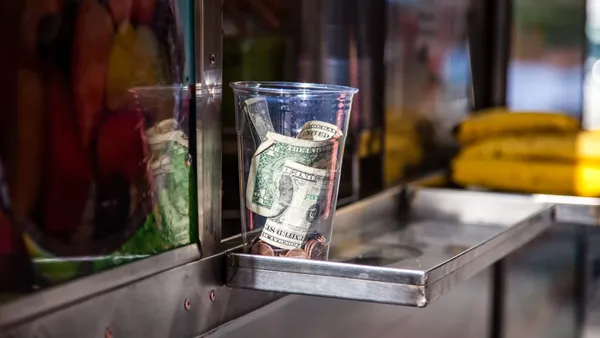Dive Brief:
- Predictive scheduling laws — meant to protect employees from short-notice schedule changes — appear to be having their intended effect, according to new research from Deputy, a workforce management platform.
- Shift workers in the U.S. are scheduled for an average of 86.2 hours each month and work an average of 85.4 hours. During the first six months of 2019, employees' hours worked exceeded hours scheduled only once. Deputy said this points to the effectiveness of new fair workweek laws and predictive scheduling regulations; "This potentially illustrates how well young labor compliance laws are working in a complex and tight U.S. labor system," according to the report.
- By comparison, shift workers in the U.K. average 99 hours per month and those in Australia average 93.
Dive Insight:
Predictive scheduling proposals have cropped up across the country, and at least seven have been passed into law. Other jurisdictions, however, have adopted laws pre-empting such legislation.
Largely aimed at protecting employees, these laws generally require that employees receive their work schedules in advance and that employers refrain from altering those schedules. Some apply only to certain industries, such as retail; others set a maximum wage for protection.
Experts generally agree that unpredictable schedules are a significant burden for workers, creating budget uncertainty, childcare problems and missed doctors' appointments. Recent research shows that they also harm workers' health, creating stress and sleep issues. And a New York Times story published Wednesday outlined how schedule instability is disproportionally placed on women of color — a problem that can hinder diversity and inclusion efforts and create discrimination claims.
Not taking compliance seriously can have major consequences for restaurants, as well. Chipotle recently came under fire when New York City Bill de Blasio's administration announced it was suing the chain for violating the city's Fair Workweek Law. The legislation bars companies from altering a worker's schedule less than two weeks before the work date, and more than 30 Chipotle employees from five Brooklyn locations claimed that they weren't given their schedules at least 14 days in advance. The department is asking for at least $1 million in restitution, plus civil penalties and future compliance.
This could seriously hurt the brand's reputation, especially since the restaurant has been positioning itself as a progressive employer with expanded employee benefits and bonus programs. Regardless of whether Chipotle takes a hit in sales or brand perception over this suit, restaurants should be wary of the growing expectations diners have for fair workplace policies from their favorite brands, as it could turn off consumers, according to the Harvard Business Review.














